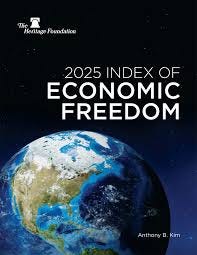Better Economic Instruction Will Restore Economic Freedom
My latest article in Real Clear Markets
I worked with three superstar economics educators, Dirk Mateer, Brian O’Roark, and Cate Johnson on an article on Economic Instruction for Real Clear Markets. We are working together on a much broader projects looking at economic agency, economic literacy, and biases and misperceptions. Our goal is scholarly research, but we will likely write more commentaries along the way.
We think the way economics is being taught is not adequate and have thoughts on how to improve it. Here are a couple excerpts.
Economic freedom is a vital component of a prosperous society. Defined as the ability to make economic decisions without undue government influence, people in free societies can work, transact, and contract with others, as well as own and use productive property. The United States has traditionally been one of the most economically free countries; however, measures of economic freedom from Freedom House, The Heritage Foundation, and the Fraser Institute in Canada, demonstrate a troubling pattern: over the last 30 years, economic freedom in the United States has declined precipitously.
As useful (and disturbing) as this knowledge is, these measures provide us with data but do not help us understand why economic freedom is waning. To understand the root cause of the decline, and reverse it, we need to get to the heart of what Americans know, and don’t know about economics. Without an understanding of how the economy functions, and how freedom is the foundation of our economic prosperity, the slide will continue.
And
What does that mean for economic educators? ECON 101 should return to its roots by accentuating the history of economic thought, buttressed by the work of Adam Smith, Frédéric Bastiat, F.A. Hayek, Milton Friedman and others, like economic historian, Joel Mokyr, who was a recipient of the 2025 Nobel Prize in Economic Sciences, who think holistically about complex problems.
For more, check out the article!



